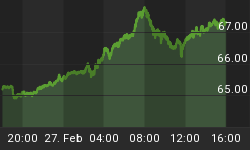In any country, at the end of the proverbial day, both energy utilities and consumers are finally interested in the technologies that generate a kilowatt of electricity most inexpensively, all other considerations aside.
Accordingly, all countries involved in solar energy are optimists, but nascent industrial efforts to generate power on a commercial scale from the sun are without exception dependent upon current government subsidies to enter the market, which is littered with optimism, the failure of U.S. federally subsidized company Solyndra being Exhibit A.
But countries worldwide are seeking government support to shield their embryonic solar industries from market realities until conditions improve, and few countries are more caught between the realities of the "free market" and national priorities in developing energy alternatives than Israel, whose energy imports remain a major topic of concern to the government. Subsidies are viewed as critical worldwide by solar producers, especially in a recession market, but fiscal realities are asserting themselves, which alternative energy companies warn could kill their efforts.
Israel's government is now reconsidering its alternative energy policies due to fiscal constraints, to cut the incentives price for mid-sized photovoltaic power plants.
Association of Renewable Energy of Israel CEO Eitan Parnass bluntly told Public Utilities Authority (Electricity) acting chairman Orit Farkash-Hacohen, "People will avoid private power production in Israel if the rates the entire industry relied on are changed."
As a consequence of the global recession that began in 2008 prices for photovoltaic solar panels worldwide have receded. Quite aside from substantial economic recessionary pressures, Chinese manufacturers of photovoltaic solar panels are now facing a substantial inventory backlog of unsold panels. Electricity market sources say that several Western countries that are prominent in the solar energy industry, such as Germany, Italy, and Spain, have reduced their subsidies and tariffs to solar energy producers, because of the global crisis.
In Israel however, the steep decline in prices for photovoltaic solar panels initially generated unexpected profits for solar power companies, as national electricity rates were set two years ago, but Israeli solar companies are now threatened by the proposed government reduction in subsidies.
Accordingly, the Public Utilities Authority plenum decision is awaited by Israel's solar community. In seeking to advance their arguments, solar companies aver that the Public Utilities Authority is not considering their expenses since 2009, when almost no power production licenses were issued, due to bureaucratic delays.
All is not bleak on the Israeli solar front, however - on 24 October SolarEdge Technologies Inc., a firm that developed a power harvesting and monitoring system for photovoltaic panels capable of improving the performance of solar energy systems, raised $37 million in venture capital, primarily from California-based Norwest Venture Partners.
Despite issues of funding of solar panels electrical production, in July Arava Power inaugurated its 4.95-megawatt solar power field. In the future, Arava Power projects launching 40 solar energy fields in the Negev desert region, assisted by tariffs for investors supported and guaranteed by the government.
Interestingly, despite Israel's renowned high technology base, Arava Power has partnered with Chinese-produced Suntech photovoltaic solar panels because Israel's nascent solar energy is currently unable to compete. Arava Power CEO Jonathan Cohen CEO said, "The technology needs to be time-proven to prove its bankability. When the means are made available to ensure Israeli novel technologies are included in Israel's solar drive, we and others will be looking to employ them as much as possible."
Cohen has reason to be sunny, as on 21 October Israel's Public Utilities Authority awarded Arava Power the country's first permanent solar license in the aftermath of Arava Power interconnecting its 4.95 megawatt Ketura sun field to the national grid by the Israel Electric Corporation.
So, Israeli solar power - glass half-empty or half-full? Given Arava Power's experience, should the troubling issue of government support be resolved, it would seem that the container could soon be overflowing, with the only problem being what happens after twilight.
Just a question of government grants to tide companies over the rough patches.
By. John C.K. Daly of http://oilprice.com















